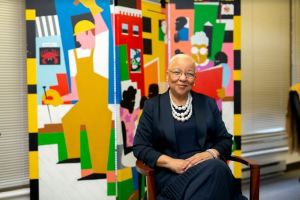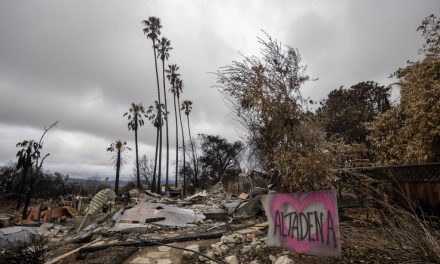

Photo by Hush Naidoo Jade Photography on
By Congressman Kweisi Mfume
Health care disparities are wide and show gaps among economic classes and races and these gulfs deepened with the COVID-19 pandemic. Among communities of color the healthcare response and outcomes have been especially catastrophic. The human death toll and suffering are great no matter where you are from, it is clear that we must do more than just empathize with those affected.
Whether it’s a married couple from Detroit in their 40s dying thousands of miles apart and leaving behind seven children or a young pregnant mother who had diabetes and died two days after giving birth to her child in Jersey City or doctors, nurses and paramedics having to work double and triple shifts across the country and sometimes putting themselves in quarantine , COVID-19 has been and continues to be a threat to everything we hold dear as a society.
While there may be systemic racial barriers to healthcare solutions in battling COVID-19, this disease does not discriminate, rich or poor, Black or white, urban or rural you can still be infected by the Corona virus.
With grandparents taking care of children for cultural and economic reasons, multi-generational risks of COVID will be affecting the Black community more than other segments of our society. Very young children cannot yet get vaccinated, while Elderly people are at risk of dying from it. Moreover, generations young and old have faced food insecurities because of underemployment or loss of work.
Baltimore has some success stories like the Maryland Baptist Aged Home in West Baltimore , a 100 year old Black-owned nursing home which was able to tamp down the disease to zero cases in the middle stages of the pandemic. Just as impressive is the feeding cooperative and non-profit activists in the Cherry Hill neighborhood distributing over 100,000 pounds of food to those in need during this pandemic’s height. The greatest measure of our mindset and resolve is that when crises come, we come together as a community.
As we return closer to a sense of normalcy, we must understand in Maryland as in other parts of the country that the disease is still running rampant. We combat this virus best by taking the commonsense steps we took at the beginning:
- Practice good hygiene and disinfecting techniques.
- Practice social distancing.
- Wear a mask, and where possible get vaccinated.
The myriad reasons of why COVID-19 has affected black and brown communities more than the white population generally, illustrates the complex interplay between the larger systemic realm of biological, behavioral, healthcare systems and the depth of influence of individual, interpersonal, community choices and norms. A framework must be created within which impactful research strategies to address minority health and health disparities can be understood.
Therefore, beyond these immediate theoretical discussions about healthcare disparities, local, state, and federal leaders must do their best in funding hospitals, healthcare facilities, first responders, researchers, and local responses to the COVID-19 crisis. My Congressional colleagues and I in Maryland (Senators Cardin and Van Hollen and Representatives Ruppersberger and Sarbanes) recently announced additional funding in the amount of $12 million that we have secured from FEMA to fight this scourge.
As a nation, we have not made big enough strides in addressing the negative societal impacts of health disparities and this has led to awful results for Black communities throughout the United States as evidenced by COVID-19. One thing we can be sure of is that pandemics don’t create disparities, they expose them. Our ability to beat COVID-19 will also depend on our willingness to combat and defeat the ever-persistent problems of racism and classism in healthcare delivery and access. If we do not address the gaps in how we care for Black and Brown people, there will be further problematic health and economic consequences with subsequent pandemics and epidemics.
The opinions on this page are those of the writers and not necessarily those of the AFRO. Send letters to The Afro-American • 145 W. Ostend Street Ste 600, Office #536, Baltimore, MD 21230 or fax to 1-877-570-9297 or e-mail to editor@afro.com
Help us Continue to tell OUR Story and join the AFRO family as a member – subscribers are now members! Join here!
The post Black People are Dying at 1.4 Times the Rate of Whites in this Pandemic appeared first on AFRO American Newspapers .











